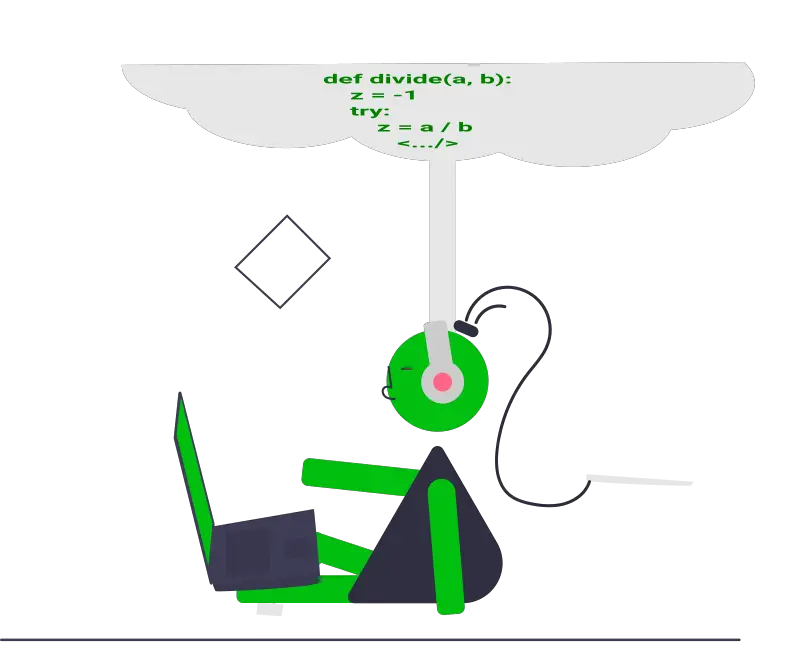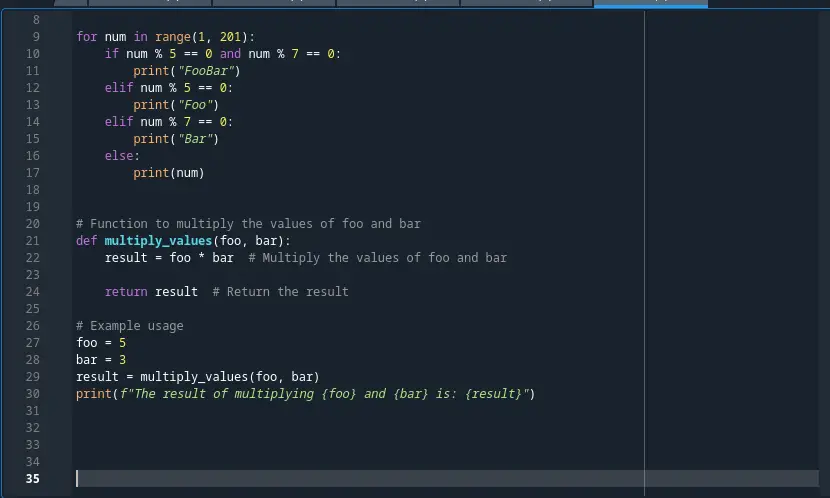It’s common for programmers to feel a sense of frustration or defeat when they forget syntax or encounter a problem that they can’t solve.
However, it’s important to remember that programming is a continuous learning process, and mistakes and failures are natural parts of that process.
In fact, many experienced programmers will tell you that they have learned more from their mistakes and failures than from their successes.
Learning to persevere through challenging problems, ask for help when needed, and to take the time to research and learn new skills is essential for anyone who wants to succeed in the field of programming.
That begs the question, would it be normal to forget coding syntax as a programmer?
It’s completely normal to forget coding syntax, especially if you are not using a particular programming language, framework, or feature frequently. As a programmer, you may work with many different programming languages, frameworks, and tools, and it’s impossible to remember every syntax rule, method, or function for all of them.
The good news is that forgetting syntax is not a significant problem in the long term.
You can always refer to the documentation or search for code examples on the internet to refresh your memory.
In fact, many experienced programmers rely heavily on documentation and online resources to look up syntax and usage of specific language features. The ability to research and learn new syntax is a valuable skill for any programmer.
What’s more important is to understand the programming concepts, principles, and logic behind the code, which will help you write better and more efficient code.
While it’s crucial to have a good understanding of programming concepts and logic, memorizing the syntax of every language, framework, or tool is impractical and unnecessary.
Additionally, there are many techniques and tools available to help programmers work efficiently without having to memorize every syntax rule.
Integrated development environments (IDEs) can provide code completion, syntax highlighting, and other helpful features to speed up coding and minimize syntax errors. And, taking notes, creating cheat sheets, and building a personal knowledge base can also help you retain frequently used syntax.
How important is syntax in coding?
Syntax is a fundamental aspect of coding that governs the structure, grammar, and rules of a programming language.
It defines how code is written and interpreted, and even small mistakes in syntax can lead to errors or unexpected behavior in the code.
Therefore, it is essential to pay close attention to syntax when writing code.
For instance, consider a scenario where a programmer is working on a web development project that involves manipulating the HTML and CSS code of a website.
In this case, proper syntax is critical for the code to function correctly and appear as intended on different devices and browsers.
A missing semicolon, a misplaced bracket, or a typo in a class name, especially when working with Python Django web development, can all cause issues that are difficult to debug and fix.
In addition, syntax can play a role in the readability and maintainability of code.
In a large codebase, it’s essential to follow consistent naming conventions, indentation, and commenting to make the code easy to read and understand for other developers. This can save time and effort in the long run, especially when it comes to debugging or modifying existing code.
However, syntax is not the only factor that determines the quality of code.
Good programming practices, such as modularity, abstraction, and testing, can also play a significant role in creating efficient and maintainable code.
In some cases, advanced tools such as integrated development environments (IDEs) or code generators can help automate or abstract away some of the syntax details.
But even with these tools, it’s important to have a good understanding of syntax rules and principles to ensure that the generated code is accurate and reliable.
Overall, while syntax is undoubtedly important in coding, it’s just one of many factors that contribute to the quality of code.
By paying attention to syntax, following good programming practices, and using appropriate tools, programmers can create code that is both efficient and maintainable.
FAQs
Does coding require a programmer with better memory?
While having a good memory certainly can be helpful for programming, it’s not necessarily a requirement for success.
In fact, many successful programmers have developed strategies and techniques to work around their memory limitations and still write high-quality code.
Forgetting coding syntax is a common experience for many programmers, regardless of their level of expertise or experience.
While some programmers may have better memory skills than others, the ability to memorize every syntax rule for every language or framework is impractical and unnecessary.
However, forgetting syntax does not necessarily impede a programmer’s ability to write quality code.
Many successful programmers, especially myself, rely on documentation, online resources, and tools like IDEs to look up syntax and usage of specific language features. In fact, the ability to research and learn new syntax is a valuable skill for any programmer.
Moreover, there are many techniques and strategies available to help programmers work efficiently without having to memorize every syntax rule.
For example, breaking down complex problems into smaller pieces, documenting work, and creating personalized cheat sheets and reference guides can all help mitigate the impact of memory limitations on coding productivity.
Ultimately, while having a good memory can be helpful for coding, it’s not a requirement for success. Programmers who experience memory limitations can still create high-quality code by relying on available resources and developing strategies that work for them.
Can you forget a programming language if you don’t practice it?
It’s possible to forget a programming language if you don’t practice it regularly. While some programmers may have a natural aptitude for coding and can quickly pick up new languages and frameworks, most people need regular practice and exposure to a language to maintain their proficiency.
For example, I am a programmer who learned Java in college but hasn’t used it since graduating. I may have a basic understanding of Java syntax and concepts, but without regular practice, I struggle to remember the details or nuances of the language.
This makes it difficult for me to write efficient or effective Java code, or to debug issues that arise in Java-based projects.
Another scenario where a programmer may forget a language is when they switch careers or roles and no longer use the language in their day-to-day work.
For instance, a programmer who moves from a Java-based project to a Python-based project may find that they struggle to remember Java syntax or struggle to transition their mindset to the new language.
In both of these cases, it’s important to note that forgetting a language doesn’t mean that the programmer has lost their skills or their ability to learn new languages. Instead, it’s a natural part of the learning process and can be overcome with practice and exposure to the language.
Conclusion
Forgetting coding syntax is a normal part of the learning process for programmers.
While it can be frustrating to forget the details of a language or struggle with a particular syntax rule, it’s important to remember that programming is a continuous learning process that requires adaptability, resourcefulness, and a growth mindset.
Experienced programmers understand that forgetting syntax is not a sign of weakness or incompetence, but rather an opportunity to learn and grow.
By leveraging online resources, documentation, and other tools, programmers can quickly refresh their memory and find solutions to even the most challenging syntax problems.
Moreover, as the field of programming continues to evolve and new languages and frameworks emerge, the ability to learn quickly and adapt to new tools and technologies is becoming increasingly important.
The most successful programmers are those who embrace the learning process, remain curious and adaptable, and are willing to take risks and learn from their mistakes.
Ultimately, forgetting coding syntax is not a setback, but an opportunity to learn and grow as a programmer.
By staying engaged with the field, seeking out new challenges, and continually expanding their skills and knowledge, programmers can overcome any obstacle and achieve success in their careers.







